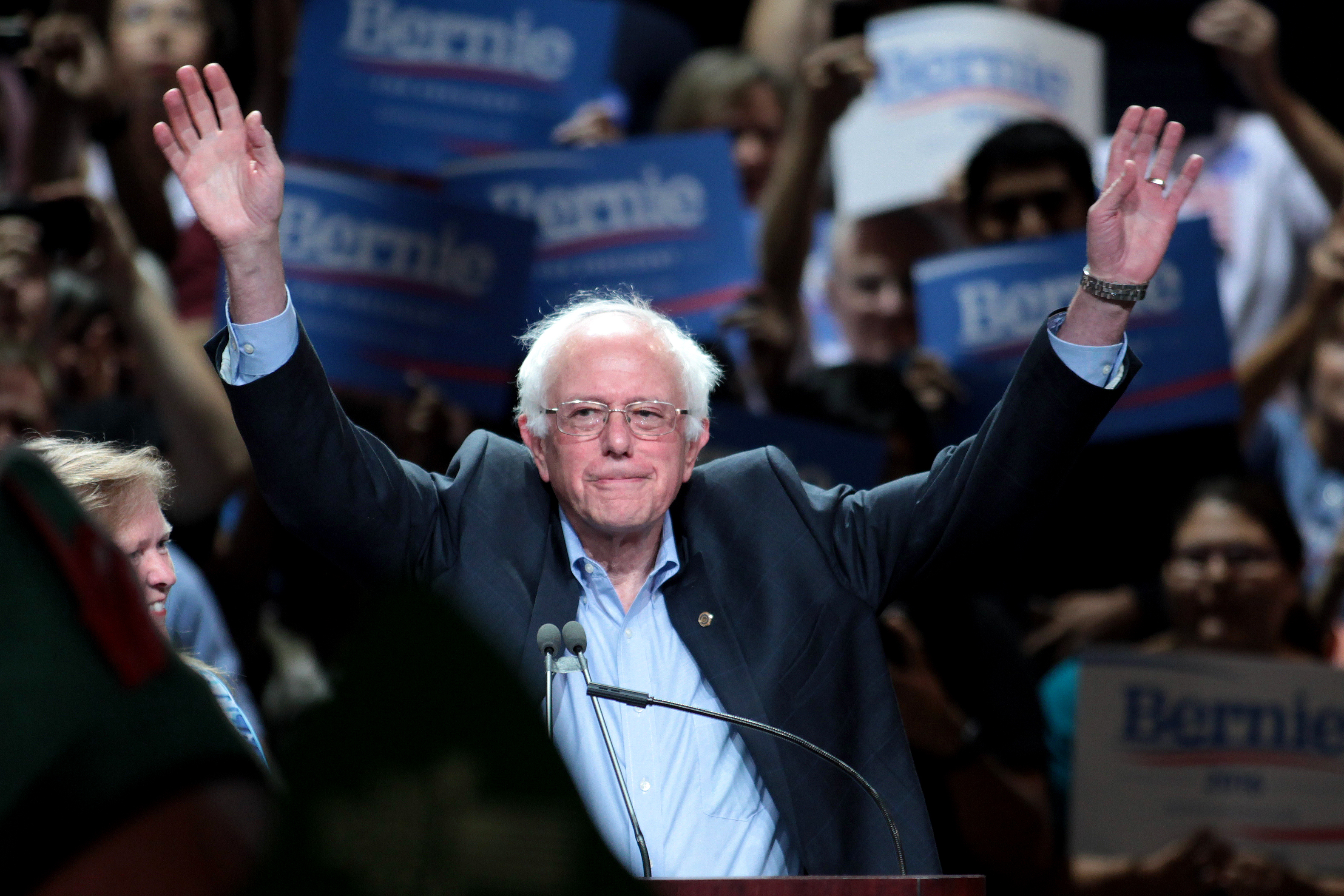At first glance, Sen. Bernie Sanders and businessman Donald Trump share little in common. Sanders, a longtime Vermont politician, is a self-declared “democratic socialist” who often criticizes the excesses of Wall Street and the economic “1 percent.” Trump, a successful businessman, is highly critical of illegal immigrants and “unfair” international deals.
For most millennials, Sanders is a shining light in the political darkness, and Trump personifies everything that is wrong with American politics. Regardless of whether this is true, the notion obscures a stunning truth: Trump and Sanders are ideological allies.
Sure, Trump claims to be a conservative and Sanders a democratic socialist, but beneath the self-declared labels, each candidate embraces a btrand of populism that thrives on blaming and belittling a group perceived as a threat to the general population. For Trump, this is most manifested in his attacks on immigrants, especially illegal immigrants. For Sanders, this is clear in his stump speeches decrying America’s richest.
But the similarities don’t stop there.
Take health care, for example. Both candidates support universal health care, which is especially unusual for a Republican like Trump. Each dislikes the Affordable Care Act — more explicitly in Trump’s case but implicitly in Sanders’ plan as well. Sanders’ universal health plan would mostly eliminate the need for private insurers, which comprise a key part of Obamacare. Trump is less specific with his plan but makes clear the government must insure the less fortunate.
Then there’s free trade. Both candidates are adamant opponents of free trade agreements such as the Trans-Pacific Partnership and the North American Free Trade Agreement. They agree that such deals hurt the average American worker while benefiting large multinational corporations. Trump seems to believe he can win lopsided trade deals, but it is clear he is opposed to basic free trade as vehemently as Sanders.
On foreign policy, Sanders and Trump are again in lockstep. Both were strongly against the Iraq War and generally favor noninterventionist foreign policy. Each has unusually strong support for veterans; Sanders’ only nonpostal legislation in Congress was a veterans’ affairs bill, and Trump has shown strong private support for veterans, leading to awards and accolades. Trump certainly favors “American exceptionalism” more than Sanders, but each is willing to cut military spending — usually a no-no for either party.
Even on immigration, Sanders’ record matches Trump’s policy stances — if a little more civil and a lot less belligerent. Dolores Huerta, the famed Latina civil rights activist, criticized Sanders’ record on immigration while in Congress in a recent column. She points to his somewhat pro-deportation voting record, his voting against the failed 2007 Democratic immigration reform bill and his protection of the Minutemen. Trump’s policy proposals need no introduction, and while they’re definitely more radical, each appears distrustful of immigrants in part thanks to labor advantages granted to businesses.
If you’re tired of the policy similarities, let’s not forget each is a party outsider. Sanders is a longtime independent who has generally supported policy proposals considered more radical than the typical Democrat. Trump, once registered as a Democrat, has never held political office and in no way represents a typical politician. And of course, each candidate has shunned special interest money and criticized the role of business and interest groups in politics. Remarkable.
The candidates are not identical — especially on social issues such as abortion and Trump’s tendency for truly offensive and bombastic comments about various groups. Each has different policy priorities, mannerisms and the like. But they also share fascinating similarities stemming from their populist leanings.
It’s no surprise that each has gathered a fervent (mostly white) base of support yet will unlikely gain widespread support in a general election. Trump’s supporters cross-cut ages, income and education, but most are angry with government and its priorities. Many are distrustful of immigrants and Muslims. Sanders’ supporters are generally younger and distrust big business, Wall Street and politicians who associate with them. His campaign promises of cheaper government-provided services resonate with them. His supporters are generally more diverse and inclusive, but some are also distrustful of widescale immigration. In addition, the “Bernie Bro” phenomenon has made his movement seem less inclusive at times.
What’s the common denominator? Americans are angry. With big business, mounting debt and government. Some blame rich people, some blame immigrants, but each takes issue with the current political establishment in both parties. But the same things that unite and energize their supporters also make them unsuitable to uniting the country.
For his part, Trump’s tendency to alienate women, minority groups and people in general makes him unlikely to unite large swaths of the country — and will certainly energize his opponents. Even his Republican populism is distrusted by primary voters, who often prefer more conservative policies across the board. Frankly, many conservatives find it tough to trust Trump.
Sanders has his own issues. Popular in his own state and party to be sure, his ideology is alienating to Republican-leaners distrustful of government and supportive of capitalism. His stance on guns will prove divisive, as well as his general distaste for “American exceptionalism.” He too would not unite the country — even as he attracts a fervent primary following.
Trump and Sanders might appear opposites thus far in the presidential election. They have a fundamentally different way of treating fellow human beings; that much is clear. But each commands large rallies, generates fascinating headlines and proposes outside-the-box policies. They appeal to a vocal support base and display populist roots. Many of their beliefs and policy proposals are strikingly similar. Win or lose, they will certainly leave their mark on American politics for decades.
Matt Dragonette, opinion editor, is an accounting and government and politics major. He can be reached at mdragonettedbk@gmail.com.



